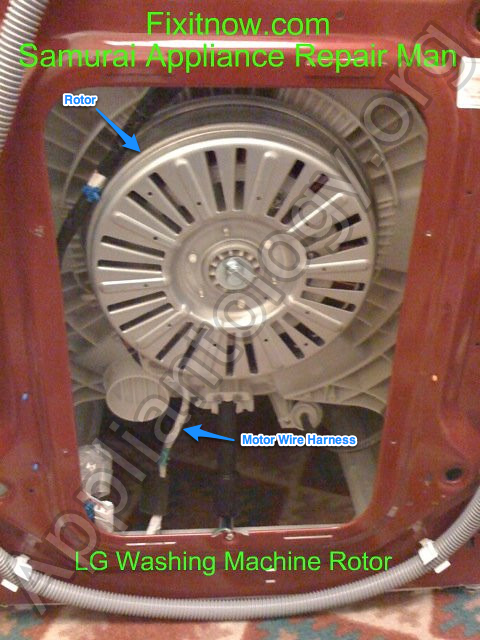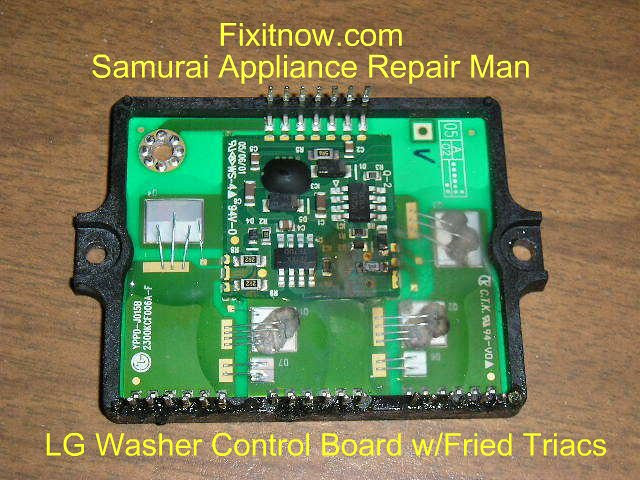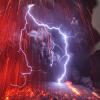Special repair trick for fixing an LE error code in LG front-load washers (and it's NOT the hall sensor)
As most people know after a quick search of the Internet, the LE error code in LG front-load washers is usually caused by a bad hall sensor, also called a rotor position sensor or RPS. Part number: AP4440680
The hall sensor is easy to test and replace, see this post at Fixitnow.com for detailed instructions.
Okay, let's say you replaced the hall sensor because you believed it was bad and you're still getting that ding-dang infernal LE error code. What's a brutha to do?
First off, don't go into a blind parts changing monkey panic and start replacing parts that just never fail on their own like the stator. Take a breath, unbunch them panties, and come with me now as we step through the three most likely causes for the LE error code that persists even after replacing the hall sensor.
1. Using too much or the wrong kind of detergent
Using non-HE (high efficiency) detergent in any HE washing machine (which includes ALL front loaders, regardless of brand or model) is a big Bozo No-No. You can't just use less of the non-HE stuff because washing with low water requires different detergent chemistry than washing with boocoo water.
The biggest problem with using non-HE detergent is sudsing. Excessive sudsing can cause problems in HE washers by “cushioning” — or even preventing — the tumbling action. HE detergents also hold soils and dyes in suspension in low water volumes, so they don’t re-deposit onto cleaned clothes. This means that if you’re using non-HE detergents in your front-loading washer, you’re wearing poopy germs and other ca-ca on your clothes right now and you are one of the Great Unwashed. The inside of your washer will start smelling poopy, too. See my seminal tome, 9 Ways to Beat Odor Problems in Modern High-Efficiency Front Load and Top Load Washers, for more.
But the biggest problem with sudsing as it pertains to the LE error code in LG front loaders is that the excessive suds can trick out the control board because the load doesn't "feel" right (yes, the control board senses the load and its action) and so it throws an LE error code.
Note that using too much HE detergent can cause over-sudsing, too. Detergents are one those things where more is NOT better. You want just the right amount and no more. So what is the right amount? Well, first off, disregard the idiot directions on the box. Naturally they're going to tell you to use more so you'll have to buy more sooner. And don't fill it to the MAX line in the dispenser. Start with the following amounts of HE detergent and adjust based on your water hardness; more for hard water, less for soft water (read more about water hardness and how to check yours in this post, The Hard Facts about Hard Water and Your Appliances):
- Regular HE detergent: 2 tablespoons per normal wash load
- HE 2X (double concentrated): 1 tablespoon
- HE 3X (triple concentrated): 1 teaspoon
2) Broken wire harness
If you're sure that you (or your customer, if you're a professional appliantologist) are using the correct type and amount of detergent then replace the motor wire harness at the back of the washer (the one underneath the motor). You can see it in the photo below:

Even though the wire harness may look fine, one of the wires inside may have broken over the years of use-- they's a whole lotta shakin' and gyratin' going on back there! Also, wire harnesses in dynamic environments like a front load washer can become intermittent in their conductivity. It may work in more quiescent parts of the cycle and then break continuity as the movement increases. This can break the data feedback from the hall sensor to the main control board and cause it to throw an LE error code.
A visual inspection of a wire harness doesn't give a full assessment of its integrity-- you have to measure continuity of each wire in that harness to know what's really going on.
Or just go ahead and replace the wire harness, it's inexpensive and easy to do.
3. The main control board may be bad
Emphasis on the "may" because this is actually the least likely scenario yet the first one that most techs will jump on in these situations. Lots of times, when the main control board in an LG washer goes bad, it's visible, like in this one:

It's usually the triacs, the power transistors, that get shorted out. If you see this, you better look for the problem elsewhere in the machine because something shorted and caused the triac to draw excessive current which burned it up.
But control boards absolutely do fail in non-visible ways, too. So if you're still getting the LE error code after you've replaced the hall sensor, you've ruled out detergent issues and replaced the wire harness, then the only thing you're left with is the main control board.
-
.png) 6
6
-
 1
1






1 Comment
Recommended Comments